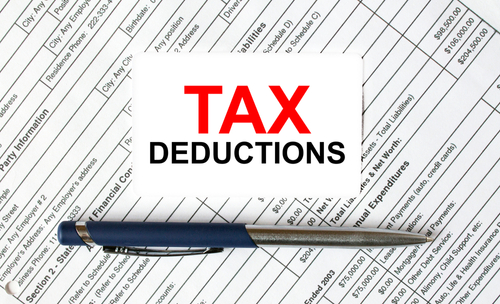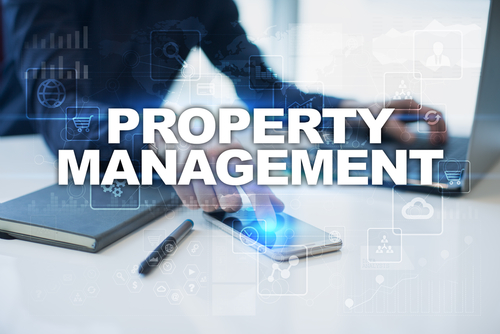
Rental property owners have a significant responsibility when tax time comes around. After all, landlords are responsible for reporting rental property income on their tax returns each year. While filing taxes, rental owners must declare all payments they receive as rental property income. Then, investors can deduct qualifying expenses from the total revenue. If you’re a new investor or you need to brush up on tax requirements, here are some tips to consider.

According to the IRS, rental property income is any payment you receive for the use or occupation of a rental property. If you have multiple properties, you must report rental income for each one.
Remember that monthly rental payments from tenants may not be the only income you generate. Since landlords must report all forms of rental revenue, it may consist of other earnings. For example, landlords must report income such as:
If you own real estate, it’s imperative to stay up-to-date with tax requirements and responsibilities. Luckily, if you hire rental management in Philadelphia, they’ll send you monthly and annual financial statements, making it easier to track your income and expenses. However, if you’re not sure how to report your rental property income, here are some things to keep in mind.

Each tax season, landlords should report rental property income on a Schedule E (1040) Tax Form. On your Schedule E, document all rental property income , expenses, and depreciation for each rental property. With that being said, if you own more than three rental properties, you can use more than one Schedule E form to list each one.
If you’re filling out a Schedule E form for several properties, complete lines 1 and 2 for each of your properties. Then, when you fill out the total amount, only fill in this portion of your return on one of the Schedule Es. The total amount should represent the combined totals for all of your rental property income. Next, let’s go over how you can prepare your Schedule E.
To make it easier while filling out your taxes, you’ll want to break down each rental property’s income and expenses category. That said, whether you’re using accounting software, meeting with an accountant , or tracking your finances on your own, break down income into the following sections:
In addition to reporting rental property income, you may be able to deduct some business expenses. Keep reading to learn about some standard rental property tax deductions to consider.
Knowing how to maximize every tax-write off is a skill that investors must-have. Luckily, there are several tax deductions to take advantage of compared to other investment categories. Here are 10 of the most common deductions to consider:

One important tax deduction for investors to consider is depreciation. Depreciation allows real estate investors to get a portion of costs back after several years. However, investors may not deduct the expenses of a single-family home, multi-family buildings, or other rental spaces purchased in the same year.
Luckily for landlords, rental property insurance premiums are all tax-deductible. Some of the common insurance types for landlords include landlord liability, theft, fire, or flood insurance. Additionally, if you have employees working for your rental business, you may deduct expenses related to workers’ compensation or health insurance costs.
One of the most impactful tax deductions for landlords is interest. You can deduct interest on mortgage loan payments used to purchase or repair the rental unit. Additionally, investors can deduct credit card interest if they have a company card to purchase goods or services for their rental.
Another great tax write-off is rental property repairs or maintenance costs. However, to could as a tax deduction, the repair must be necessary, reasonable, and ordinary. Furthermore, landlords can only deduct repair costs within the year they occurred. Some repairs you could consider for deduction include patching a roof, fixing a leak, or repainting the property.
When landlords outsource and hire employees or independent contractors to perform work on a rental property, they can deduct their wages. For tax purposes, paying employees or contractors is a business expense. So, whether you hire a maintenance man or a rental property management company, you can write off their wages.

Landlords often have to travel frequently, especially when they own multiple rental properties. When you’re performing work for your rental property business, you can deduct travel expenses. Whether you’re traveling to show a property or going to fix a necessary repair, you can deduce these expenses.
More and more people are starting to work from home–even landlords. While it’s not as common as other tax write-offs, investors who work from home can deduct home office expenses. If you qualify for the deduction, you can write off expenses related to office work or other spaces in your home used for your rental business.
You often work with legal professionals like accountants, tax specialists, or financial advisors when you own a business. These costs are tax-deductible as long as they are directly related to your rental business.
Landlords sometimes use personal property in or outside their rental properties. Some examples may be furniture, appliances, or yard maintenance equipment. If you provide any personal property along with your rental property, you may be able to deduct these expenses. However, the costs may not exceed $2,000.
If you hire a property management company to take care of your rental properties, you may be able to deduct costs as administrative expenses. However, even if you manage your own rental properties, you can deduct costs like tenant screening, marketing, and seasonal maintenance. That said, f you’re looking for a property management company in Philadelphia , consider Bay Property Management Group.
Tracking rental property income and expenses for each rental property can be stressful and overwhelming. After all, nobody wants to deal with audits or issues when they file taxes. Additionally, you want to make sure to maximize all available tax deductions.

Luckily, there are resources to help your rental business succeed. For example, Bay Property Management Group offers comprehensive rental services, so you don’t have to stress about the big and small tasks it takes to run a rental business.
Contact Bay Property Management Group today if you need rental management services in Baltimore, Philadelphia, Northern Virginia, or Washington DC.
Patrick Freeze is a licensed real estate broker and Baltimore native with over a decade of experience in the real estate and property management industry. He graduated from Dickinson College before starting Bay Property Management Group in 2009. Bay Property Management Group is the ultimate property management company, specializing in a wide range of properties, including single-family houses, portfolios of rental homes, and apartment buildings. Through experience and top-notch customer service, BMG is helping make property ownership the profitable and pleasurable experience it should be.
blog searchEnjoy the latest news about BMG!
Categories